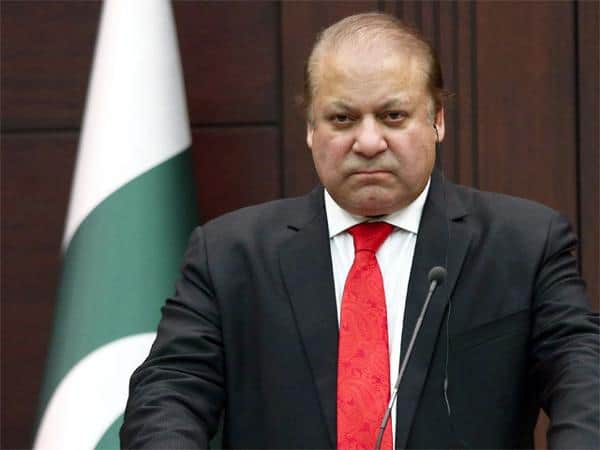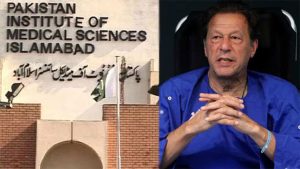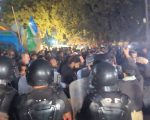The fundamental flaw in the understanding of Pakistan’s mainstream political leaders has been their perception about the US being the final arbitrator to decide their political fate. The military has traditionally favoured and disfavoured mainstream politicians in a broader context on how to handle Pakistan’s foreign policy to deal with the US. Leaders who directly attempted to run foreign policy with Washington were sidelined by the establishment over the course of decades. Nonetheless, most of the politicians from traditional mainstream political parties like ruling Muslim League and People’s Party continue to believe that the American footprint is necessary to bring them to power or perpetuate their rule in Pakistan.
The late Prime Minister Benazir Bhutto strongly believed in a combination of “three AAA’s” in terms of the sequence of priority in Pakistan’s power politics. The first A stands for Allah being the Omnipotent, the second being the Army, the most powerful state institution, and the third the Awaam (people) in whose name most of general elections have been manipulated over the course of decades.
The bigger trouble with the traditional politicians like former Prime Minister Nawaz Sharif is their inability to understand the real dynamics of fast-changing domestic, regional and international power politics and evolving new world order which is gradually diminishing the bullying role of Washington.
Despite experiencing all kind of ups and downs in power politics over the course of decades, Nawaz Sharif has been making fatal mega miscalculations in his hitherto failed strategies to survive politically —- beginning from his un-winnable battle with the judiciary to his ongoing odd tussle with the army which has been calling the shots behind the scene. The elder Sharif appears to be attempting to implicate Pakistani military in terrorist incidents in the region. His recent controversial interview questioning the role Pakistan’s state institutions in letting the militants sneak into India to kill 166 people including American citizens in Mumbai in 2008, is essentially designed to pressurize the army to use its perceived influence on the judiciary to seek concessions in his ongoing trial on money laundering charges. His conviction in ongoing trial appears certain given the lack of evidence with him to prove the sources of income with which he set up a mega business empire and purchased luxurious residential properties abroad. Therefore, he is playing to Western galleries to seek their perceived influence on country’s military to salvage his political capital after he was banned for life to hold public office following the Supreme Court’s ruling to disqualify him for being “ dishonest” to have concealed his offshore assets.
Shaky Political Cards with Nawaz Sharif
Nawaz Sharif is essentially against army’s alleged use of Afghan Taliban and other militant groups as proxies to counter Indian footprint in Afghanistan and end Indian occupation in held Kashmir. His views, in fact, reflect an underlying long held charge-sheet of US and India against Pakistan. His tirade has come at a time when the US and India have joined hands to isolate Pakistan globally.
Under US President Donald Trump, Washington and New Delhi have intensified offensive diplomacy threatening Pakistan of consequences which can range from economic sanctions to the US listing Pakistan as a state sponsoring terrorism–an unlikely scenario which Nawaz Sharif probably mistakenly believes he can exploit for political mileage.
So far the US and India have managed to prevail upon Paris based 37-nation Financial Action Task Force to place Pakistan in a gray-list of countries where terrorist groups are allowed to raise funds from June this year. The Task Force implemented the 2008’s UN Security Council resolution only after Islamabad’s failure to ban and choke sources of funding of welfare organizations of Hafiz Saeed who New Delhi and Washington suspect masterminded terror attacks in Mumbai. Pakistan stayed on the grey-list of the Task Force from 2012 to 2015 and it did not hurt the country’s economy significantly. Now since legislation has already been enacted and a tangible action has been taken against Hafiz Saeed’s welfare organizations, the Financial Task Force may reverse its decision though not instantly but it is likely to happen in the foreseeable future. There is a dim possibility of putting Pakistan in the black-list.
Nawaz Sharif is no longer relevant to powerful Western capitals. The core US geo-strategic interest is to compel Pakistan military through carrot and stick policy to bring Afghan Taliban on the negotiating table in an effort to end 18 year long insurgency and exit from the neighboring country. No politician in Pakistan is or would be in a position to play this role other than the military and military-run secret services, who, like Russia and Iran, have allegedly maintained contacts with Afghan Taliban.
The reality behind Washington’s influence on Army
Pakistan has been pursuing its geo-strategic interests which primarily revolve around creating favourable conditions by allegedly using militant groups to resolve the long-standing Kashmir dispute. The former military dictator General Pervez Musharraf also admitted in his interview on February 13 with The Guardian that Pakistan, under his command, played a double game to counter Indian influence in Afghanistan.
Despite threats, the US policy has failed to bully Pakistan. The entire spectrum of bilateral relations between two countries revolves around on how to contain Afghan Taliban, who, as per US statistics, control close to 50 percent territory while independent analysts report their influence or control on as much as 70 percent of Afghanistan.
Richard Olson, who served as US ambassador to Pakistan during People’s Party’s last government in a revealing article published in New York Time in January this year wrote: “Islamabad has greater leverage over Washington than is usually perceived”. He said Trump administration’s attempt to humiliate and penalize Pakistan for failing to take decisive action against Afghan Taliban is unlikely to work.
“Pakistan, like most countries, reacts very badly to public attempts to force its hand. It is likely to respond by showing how it can truly undercut our position in Afghanistan,” said Olson, who also served as the US special representative for Afghanistan and Pakistan. “The generals knew that as long as the United States maintained an army in Afghanistan, it was more dependent on Pakistan than Pakistan was on it”, he continued.
The harsh truth, Olson believed, was that American leverage over both Islamabad and Rawalpindi (a reference to the civilian government and the military, respectively) has been declining. “And as United States aid levels have diminished … the aid from the Chinese has increased,” he wrote, noting China’s investment of $62 billion in Pakistani infrastructure under the China-Pakistan Economic Corridor (CPEC). Nonetheless, Nawaz Sharif thinks that the US influence on the army is probably strong enough to help him to stay relevant in Pakistan’s politics. By mobilizing public opinion against the military’s alleged double-dealing with the US and India, the former premier thinks that he would win hearts and minds of American top officials. Nawaz Sharif does not need a special lobby in Washington to plead his case with White House. Indian lobby in Washington is strong enough to plead his case with the US administration. But it would be an exercise in futility.
How Top Politicians Reinforced their Failures
Ousted Prime Minister Nawaz Sharif’s statement implicating the state institutions in letting the militants attack key installations in Mumbai, India in 2008, is just the tip of the iceberg of similar public outburst or discreet lobbying by the other top leaders over the course of decades. Whenever the elected governments of mainstream political parties such as Muslim League (Nawaz) and People Party were dismissed or were feared to be sent packing, top politicians lobbied with Washington to prevent the army to take over the government directly or indirectly through Presidents who in the past were armed with constitutional powers to dismiss the elected dispensations.
Weeks before 1999’s military takeover, the then Chief Minister Punjab Shahbaz Sharif, younger brother of Nawaz Sharif, rushed to Washington only to secure a public warning from the White House to Pakistan military, not to take over. But it did not stop the army to stage coupe against the then Prime Minister Nawaz Sharif’s government.
In 2007, Benazir Bhutto while being in self-exiled internationally campaigned to reverse Pakistan’s alleged discreet Afghan policy once she returns to power. She was assassinated within months after she returned home. The then military dictator General Pervez Musharraf is now being tried on the charges of masterminding her murder.
Pakistan’s former ambassador to the US Hussian Haqqani admitted in March 2017 in an article about 2011’s Memo-gate scandal against former President Asif Zardari.
The Memogate makes it abundantly clear that People’s Party’s government like Nawaz Sharif’s ruling party was clearly in sync with a Western and Indian narrative about the role of Pakistan army in propping up the Afghan Taliban.
Going by Memogate scandal, Zardari virtually worked as the US outpost in Pakistan to counter army’s geo-strategic agenda in the region. So much so Zardari through Hussain Haqqani had allegedly agreed to compromise country’s nuclear program. And allow the American military to directly hunt down the alleged hideouts of Afghan Taliban following the killing of top Al-Qaeda leader Osama Bin Laden in Abbottabad in a commando action by the US marines. However, Zardari’s entire game plan failed to take off.














